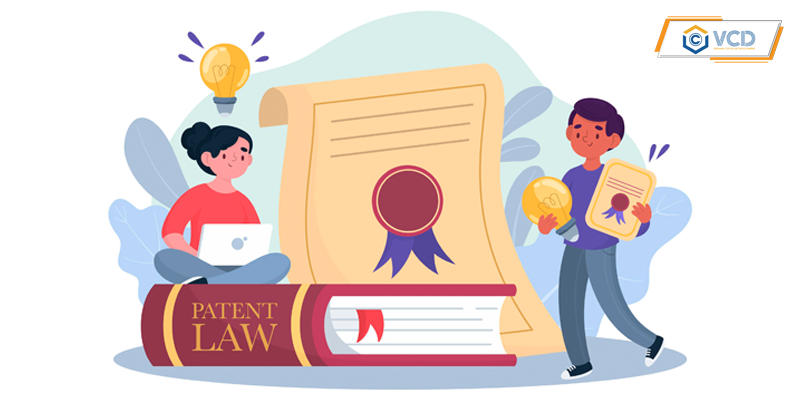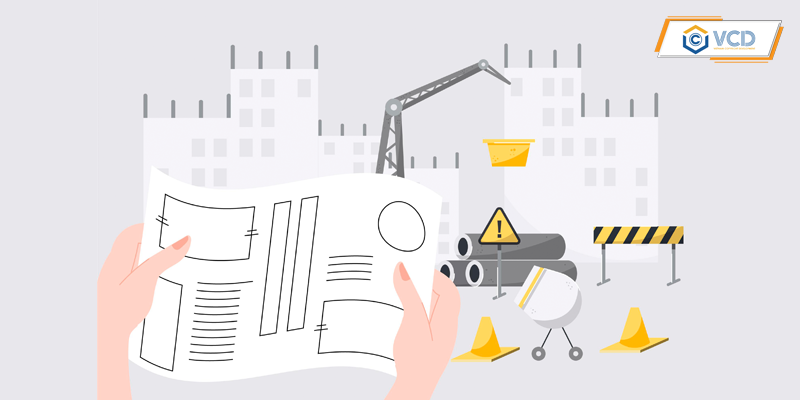How to distinguish between “reference” and “copying” when registering copyright?
In the creative process, referencing existing works is common and legally recognized. However, if the boundary between reference and copying is not correctly defined, the author may face the risk of disputes or copyright infringement. Therefore, clarifying the difference between these two concepts is crucial, especially in the context of copyright registration and protection under current laws. This article by VCD will help you.
The concepts of “reference” and “copying” in creative activities?
In the creative process, accessing and studying existing works is a common and inevitable phenomenon. Intellectual property law does not prohibit referencing previous works, as referencing is understood as the act of adopting general guiding elements such as ideas, themes, creative styles, methods of expression, or creative techniques, in order to create a new, independent work.
Reference is only considered legal when the resulting work has a distinct form of expression, reflects the author’s personal creative imprint, and does not significantly overlap with the form of expression of the existing work. In other words, referencing does not diminish the originality of the new work.
Conversely, copying is the act of reproducing all or a significant part of the form of expression of a protected work without the permission of the copyright owner. Copying includes not only verbatim copying of text, images, and layout, but also cases involving modifications or changes of form while retaining the core creative essence of the original work. According to the Intellectual Property Law, copying is one of the acts of copyright infringement.

What is the legal basis for distinguishing between “reference” and “copying”?
Based on Clause 1, Article 14 and Article 6 of the 2022 Intellectual Property Law, copyright only protects the form of expression of a work, not the ideas, processes, methods, or pure concepts. This regulation is an important legal foundation for distinguishing between reference and copying.
Accordingly, if two works only share the same idea, theme, message, or creative inspiration, but are expressed in different languages, layouts, images, structures, sounds, or creative forms, they are not considered copies. In this case, the latter work is still considered original and eligible for copyright protection.
Conversely, if a new work shows significant overlap in form, to the point that someone with average expertise in the relevant field can easily recognize the similarities between the two works, then there is grounds to determine plagiarism. The assessment of “significant” overlap is usually based on the overall elements such as structure, sequence, selection and arrangement of content, visual representation, wording, or melody, rather than considering individual details.
How to distinguish between “reference” and “copying” when registering copyright?
In the copyright registration procedure, the registration authority does not conduct a content assessment to determine whether a work infringes on the rights of another work. Registration primarily serves to record information about the author, copyright owner, and the time of establishment of rights, based on the documents provided by the applicant.
However, this does not mean that a work showing signs of plagiarism is absolutely protected by law. In the event of a dispute, if a third party claims that the registered work is a copy of their work, the competent authority will examine the content of the work to assess its originality and the degree of overlap. At that point, the boundary between reference and copying becomes a key factor in determining copyright infringement.
Therefore, when registering copyright, authors and owners need to pay special attention to the creative independence of their work, avoiding copying the structure, content, or form of expression of other works, even if the copying is unintentional.
The role of copyright registration in proving the originality of a work
According to Clause 1, Article 6 of the Intellectual Property Law, copyright arises from the moment the work is created and expressed in a certain physical form, regardless of registration. However, copyright registration is of particular importance in the practical protection of rights.
A copyright registration certificate is the initial legal evidence to prove the time of establishment of rights, authorship, and ownership of copyright. In disputes related to copying, the certificate helps the rights holder reduce the burden of proof, creating an advantage when requesting competent state agencies to apply measures to protect rights as prescribed by law.
However, it’s important to note that copyright registration does not legitimize copying. If there is evidence to prove that the registered work is not original or infringes on the rights of another work, the copyright registration certificate can still be revoked according to legal procedures.
The above is the article “How to distinguish between ‘reference’ and ‘copying’ when registering copyright?” that VCD has sent to you. We hope this article is helpful to you.
Sincerely,
FAQ
Answer: The use of another work is considered a legitimate reference when the author only adopts the idea, theme, or creative inspiration, and expresses the work in an independent creative form that does not significantly overlap with the form of expression of the existing work
Answer: No. Copyright registration only acknowledges the rights based on the registration documents and does not legitimize the act of copying; in cases where there is evidence to determine that a work infringes the rights of another work, the Copyright Registration Certificate can still be revoked according to the law.
.


















